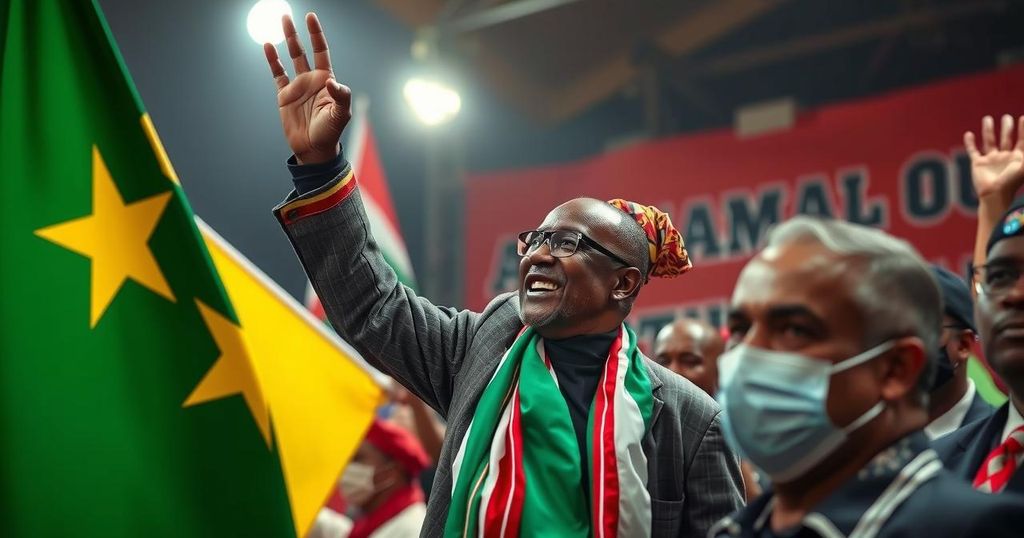Abdirahman Mohamed Abdullahi of the Waddani Party won the Somaliland presidential election with over 50% of the votes, defeating Muse Bihi Abdi of the Kulmiye Party. The election focused on democratic reforms and economic issues after previous delays. The region continues to seek recognition while maintaining stability, contrasting with Somalia’s challenges.
In a significant shift in Somaliland’s political landscape, the opposition leader, Abdirahman Mohamed Abdullahi, has emerged victorious in the recent presidential election, as reported by the electoral commission. Representing the Waddani Party, Abdullahi secured over 50% of the votes, marking a pivotal moment for the breakaway region. This election arrives after substantive campaigning focused on democratic reforms, economic revitalization, and addressing youth unemployment, creating expectations for progress in these areas. Former President Muse Bihi Abdi, of the ruling Kulmiye Party, garnered just over 30% of the votes in his bid for a second term after nearly seven years in office, during which he emphasized efforts for Somaliland’s international recognition. The recent election had faced delays since 2022 due to funding issues and other logistical challenges, but the successful outcome has been hailed as a testament to Somaliland’s stable political system. Unlike Somalia, Somaliland has maintained a functioning government and a semblance of peace since declaring independence in 1991 amidst national chaos. Recent developments and agreements, particularly with Ethiopia which enhances Somaliland’s access to the Indian Ocean, have stirred political tensions. The new administration is urged to glean more economic advantages from such deals, especially amid criticisms regarding the secrecy and haste of these negotiations. Mohamed Husein Gaas from the Raad Peace Research Institute emphasized the lack of appealing benefits in the recent Memorandum of Understanding, pointing out that the opposition party advocates for a more transparent and beneficial approach to economic agreements. Leaders in Somalia have responded to the opposition win with optimism for collaborative relations between Somaliland and the central government. Former Somali Prime Minister Hassan Ali Khaire publicly expressed his wishes on social media for the new president to guide the region towards enhanced peace, development, and unity among the Somali people. Congratulatory statements were also issued by regional leaders such as Djibouti’s President, Ismail Omar Guelleh, signaling regional support for Somaliland’s political transition.
Somaliland has maintained its independence from Somalia since 1991, establishing its governance despite lacking universal international recognition. Over the years, it has cultivated a stable political atmosphere contrary to the prevailing security issues experienced in Somalia. The recent presidential election reinforces the democratic process within the region while highlighting ongoing struggles for economic benefits and greater regional cohesion, particularly regarding agreements with neighboring states like Ethiopia. The electoral dynamics signify an evolving chapter in Somaliland’s push for recognition and stability.
The recent electoral outcomes in Somaliland reflect a pivotal moment in its political trajectory, with Abdirahman Mohamed Abdullahi’s leadership expected to steer the region towards desired economic reforms and social unity. The opposition’s victory, coupled with regional leaders’ supportive responses, offers an encouraging outlook for future interactions between Somaliland and Somalia. As Somaliland navigates its renewed governance, the emphasis on democratic principles and economic growth remains instrumental in addressing the needs of its populace.
Original Source: www.seattletimes.com






